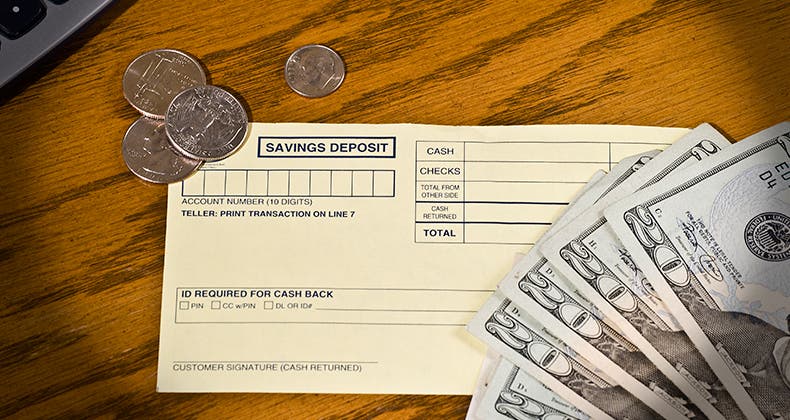Table of Content
A second mortgage is a second loan that you take on your home. You can borrow up to 80% of the appraised value of your home, minus the balance on your first mortgage. Check your particular situation carefully with a tax expert before deducting anything, as it doesn’t always make sense financially and the process can be quite complicated.

If you borrowed the mortgage this tax year, you could also deduct the mortgage points as a part of your itemized deductions. Mortgage points are money you pay to buy down your interest rate or as a fee the lender charges for underwriting your loan. Because mortgage points are prepaid mortgage interest, you can deduct them from your taxes if the loan is for your main home, and it’s normal business practice in your area to pay mortgage points. Whether you pay the points in cash at closing or roll them into your loan will affect how much of the points you can write off in a tax year. Check with your mortgage originator and/or tax advisor to verify your situation. Possibly, depending on your mortgage debt and when you borrowed the money.
Make Sure Your Loan Qualifies
527, Residential Rental Property, and 535, Business Expenses.personal interestnot deductible. To complete Table 1, line 7, Sharon must figure a separate average balance for the part of her second mortgage that is home acquisition debt. The March through December balances were all $180,000 because none of her principal payments are applied to the home acquisition debt.

A time-sharing plan is an arrangement between two or more people that limits each person's interest in the home or right to use it to a certain part of the year. You can choose to treat any debt secured by your qualified home as not secured by the home. This treatment begins with the tax year for which you make the choice and continues for all later tax years. The mortgage is a secured debt on a qualified home in which you have an ownership interest. Explains how your deduction for home mortgage interest may be limited.
Interest On Home Equity Loans Deductible In Some Cases
If the Federal Reserve raises the federal funds rate, then the prime rate—and HELOC rates—can follow suit. Go to IRS.gov/IdentityTheft, the IRS Identity Theft Central webpage, for information on identity theft and data security protection for taxpayers, tax professionals, and businesses. If your SSN has been lost or stolen or you suspect you’re a victim of tax-related identity theft, you can learn what steps you should take. ▶ Tips and links to help you determine if you qualify for tax credits and deductions.
Go to IRS.gov/Account to securely access information about your federal tax account. Go to IRS.gov/Forms to view, download, or print all of the forms, instructions, and publications you may need. The following IRS YouTube channels provide short, informative videos on various tax-related topics in English, Spanish, and ASL. Post your social security number or other confidential information on social media sites. Always protect your identity when using any social networking site.
Who Can Loan Me Money
Taking out a home equity loan is one of the most affordable ways to borrow money. That's because home equity loans typically come with lower interest rates than what personal loans or other financing options charge. Married filing jointlyFiling separately/singleHead of household2021$25,100$12,550$18, $25,900$12,950$19,400You can either take the standard deduction or itemize — not both. To take advantage of this tax break, you’ll need to itemize your deductions at tax time. If you’re planning to use a home equity loan or HELOC to pay for home repairs or upgrades, be sure to keep receipts for everything you spend and bank statements showing where the money went.

To determine your cost, include amounts paid to acquire any interest in a qualified home or to substantially improve the home. The total amount you can treat as home acquisition debt on your main home and second home is limited based on when the debt is secured. If you receive a Form 1098 from the cooperative housing corporation, the form should show only the amount you can deduct. However, you can treat a debt as secured by the stock to the extent that the proceeds are used to buy the stock under the allocation of interest rules. Receives at least 80% of its gross income for the year in which the mortgage interest is paid or incurred from tenant-stockholders. For this purpose, gross income is all income received during the entire year, including amounts received before the corporation changed to cooperative ownership.
How Do I File My Unemployment On My Taxes
The TIN can be either a social security number, an individual taxpayer identification number , or an employer identification number. If you paid $600 or more of mortgage interest during the year on any one mortgage, you will generally receive a Form 1098 or a similar statement from the mortgage holder. You will receive the statement if you pay interest to a person in the course of that person's trade or business.
Other factors, such as our own proprietary website rules and whether a product is offered in your area or at your self-selected credit score range can also impact how and where products appear on this site. While we strive to provide a wide range offers, Bankrate does not include information about every financial or credit product or service. The TCJA also introduced a cap of $10,000 on itemized deductions for state and local taxes , including property taxes. Despite provisions in the Tax Cut and Jobs Act , home equity loan interest still may be deductible for some homeowners, along with interest on home equity lines of credit and second mortgages.
Then a year later, you borrowed $100,000 from the home’s equity to buy a vacation home. Because you didn’t use the $100,000 to buy, build, or improve the house the loan is on, you can’t deduct the interest on the $100,000 loan. Also, taxpayers not enrolling in a health insurance program won’t have to pay a penalty for not doing so. Before this law came into force, you could deduct interest on loans used for non-property expenses, such as debt consolidation or purchasing other assets. Keep in mind that the IRS distinguishes between home improvements and home repairs. If you took out a $15,000 home equity loan and used that money to fix a cracked foundation, that counts as a repair, which means you generally won't get to write off your interest on that loan.

Regular home equity loans advance the borrower a single lump sum of cash. Home equity lines of credit let borrowers take cash whenever they want to up to the amount of the loan. HELOC borrowers only pay interest on funds actually advanced. To figure out how much you can deduct, you should add up the total loan amounts on the different loans outlined above. If it doesnt go above the described limits, you can deduct the total amount of interest. If the figure does exceed this limit, you can only deduct a portion of this interest.
Home equity loans come in a lump sum and have fixed interest rates that are repaid in monthly payments over a set period of time of usually 10 to 15 years. The total amount you can borrow is based on the amount of equity youve built in your home. That gives people borrowing for renovations more benefits than before. Previously, interest was deductible on up to only $100,000 of home equity debt. However, you got that deduction no matter how you used the loan—to pay off credit card debt or cover college costs, for example.

If the amount on Form 1040 or 1040-SR, line 11, is more than $100,000 ($50,000 if married filing separately), your deduction is limited. Enter your qualified mortgage insurance premiums on line 1 of the Mortgage Insurance Premiums Deduction Worksheet in the Instructions for Schedule A to figure the amount to enter on Schedule A , line 8d. If you make payments to a financial institution, or to a person whose business is making loans, you should get Form 1098 or a similar statement from the lender. This form will show the amount of interest to enter on line 13. Also, include on this line any other interest payments made on debts secured by a qualified home for which you didn't receive a Form 1098.
Use The Funds To Buy Build Or Substantially Improve Your Property
For example, you can deduct the interest if you use the proceeds to build an addition onto your home, renovate your kitchen, or replace your roof. For 2021, you can deduct the interest paid on home equity proceeds used only to buy, build or substantially improve a taxpayers home that secures the loan, the IRS says. The deduction applies to interest paid on home equity loans, mortgages, mortgage refinancing, and home equity lines of credit. However, many homeowners will be adversely affected by the TCJA provision that generally disallows interest deductions for home equity loans for 2018 through 2025. This article explains what you need to know to avoid unpleasant surprises when you file your taxes for 2018.

One way to leverage your home to earn a bigger deduction on your annual income taxes is through a home equity loan. IRS rules allow you to claim the interest you pay as an itemized deduction. You might be able to increase that deduction if you use your home equity loan to improve the value of your property.


No comments:
Post a Comment